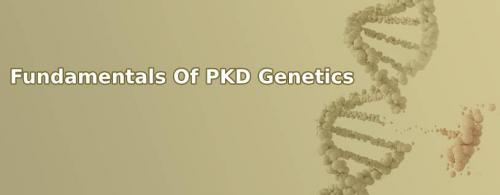Fundamentals Of Polycystic Kidney Disease Genetics

What is polycystic kidney disease?
The word polycystic means “containing many cysts.” Polycystic kidney disease is a disease that is caused by the accumulation of cysts in the kidneys and genetic flaws. These cysts contain fluid and stick together to form the clusters. PKD affects not only the kidneys but also some other organs such as the liver. The cysts hinder the functioning of the kidneys. It does not allow the kidneys to purify the waste from the blood. The development of cysts in kidneys leads to the uneven shape of the kidneys and cause kidney failure.
The problem of polycystic kidney disease comes with many complications such as hypertension, back pain, haematuria, urinary tract infections, abnormalities of the heart valve, and kidney stones. The person who suffers from the problem of polycystic kidney disease is at a high risk of swelling in the aorta. This swelling is known as aneurysms, and it can be a dangerous situation when this swelling is ruptured anyhow. There are two different types of polycystic kidney disease. These are autosomal dominant kidney disease and autosomal recessive polycystic kidney disease. The signs and symptoms of ADPKD begin to develop from an early age of adulthood; the cysts are present generally from childhood. This form of polycystic kidney disease can be classified further based on genetic reasons. As far as ARPKD is concerned, it is believed that the signs of this disease can be seen from a very early age or even when the child is an infant.
Polycystic kidney disease genetics
Let us understand the genes that cause the problem of polycystic kidney disease. Polycystic kidney disease is one of the most common genetic causes of kidney failure in children as well as adults. The growth of the cysts takes place in the epithelia of the kidney nephrons. Now, let us read about the genes of ADPKD and ARPKD.
ADPKD: ADPKD is a prevalent type when we talk about the types of PKD. It can harm both children and adults. Gene mutation is the reason for this disease. When the mutation of gene PKD1 on chromosome 16 takes place or the mutation of PKD2 on chromosome 4. Cysts in kidneys can also develop because of some other genetic diseases such as von Hippel-Lindau disease, Zellweger syndrome, tuberous sclerosis, and juvenile nephronophthisis. We can say that ADPKD is genetically heterogeneous.
ARPKD: This type of PKD is said to be very uncommon, and it profoundly affects the children. It happens due to the mutation of gene PKHD1 on chromosome 6. The genes do not affect the parents of children who have ARPKD, but they are simply the carriers of mutated genes.
Allopathy denies the treatment of this disease and suggests with some medications that can provide the patient with a temporary solution to the condition. Ayurveda said for PKD, Ayurvedic treatment to be the best treatment for PKD conditions. It provides you with natural treatment and has zero side effects.
Treatment of PKD
There are many reasons why allopathy believes that polycystic kidney disease has no treatment; genetics is one of the important causes of it. The treatment of polycystic kidney disease can be found near you most naturally in Ayurveda. According to Ayurveda, consumption of plain water and elimination of caffeine can help in slower growth of cysts in the kidneys.
Natural herbs will do wonders to your condition and take you out from such a deadly disease Herbs like Shirish, Kashi, Punarnava, and many more can help in keeping the kidneys healthy more naturally. It prevents the retention of fluid. Some antibiotics in Ayurveda also help in keeping the kidneys cyst free and healthy.
Advertise on APSense
This advertising space is available.
Post Your Ad Here
Post Your Ad Here

Comments